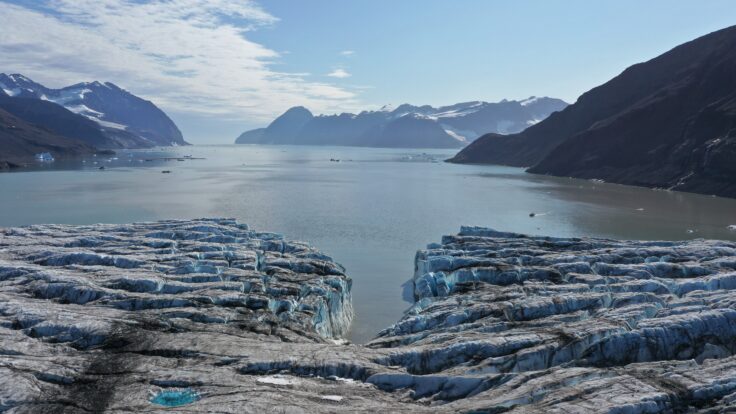British Antarctic Survey (BAS) researchers have been selected for funding from The Advanced Research + Invention Agency (ARIA) to help improve our understanding of climate tipping points. These tipping points are critical thresholds in the climate system that, if crossed, could lead to drastic and irreversible changes, such as widespread flooding, biodiversity loss, and threats to food security in the Arctic and North Atlantic.
The funding is part of ARIA's Forecasting Tipping Points programme, which aims to develop an early warning system for these climate shifts. This five-year initiative, backed by £81 million, brings together 27 international research teams to detect early warning signs of tipping points.
Climate tipping points have the potential to impact billions of people worldwide. If, for example, the Greenland Ice Sheet reaches a tipping point and collapses, it could significantly alter ocean currents and increase sea levels, leading to more frequent and severe flooding events. Currently, even our most advanced climate models struggle to predict exactly when such tipping points will occur or what their full consequences will be.
To address this challenge, the programme will focus on three key areas:
- Developing sensing systems to monitor the ocean and frozen regions (cryosphere).
- Deploying these systems in critical locations, including the Greenland Ice Sheet and North Atlantic.
- Improving computational models to better predict tipping points and their consequences.
Among the funded projects, a major initiative called GRAIL (GReenland ice sheet to Atlantic tipping points from Ice-sheet Loss), is led by BAS and aims to understand how the melting of Greenland's glaciers releases freshwater to the North Atlantic, affecting ocean circulation and the global climate. Researchers will use advanced sensors and AI-driven models to track ice melting and iceberg production, providing never-before seen data for early warning systems.

Other projects funded under the programme, and that include BAS scientists, are:
- PROMOTE - Advancing Earth system modelling to improve tipping point forecasts (led by Reading University)
- VERIFY - Using past climate data to test early warning systems (Led by University College London and University of Leeds).
- CryoWatch - Observing ice-covered regions using high-altitude satellites (Led by Voltitude).
Dr Kelly Hogan, a marine geophysicist at BAS and R+D Creator on the GRAIL project, explained the importance of this work:
"Greenland is the fastest melting place on Earth, but this ice loss has knock-on effects for both North Atlantic ocean currents and fisheries. This crucial research will help us to understand how much freshwater the ice sheet is releasing, and what the subsequent effects will be on the ocean currents that bring warm waters and weather to the UK.
"This is now urgent work for us to do so policymakers can understand what will happen in the North Atlantic and set out appropriate adaptation and mitigation plans. Some computer models predict that large changes in the Atlantic Ocean could happen as soon as the 2040s so this is a key moment for us to investigate this Greenland Ice Sheet tipping point."
This funding is subject to final contract negotiation.
About ARIA
ARIA is a UK government-backed research agency designed to support groundbreaking scientific and technological advancements. Established by an Act of Parliament and sponsored by the Department for Science, Innovation and Technology, ARIA funds high-risk, high-reward research to tackle global challenges.
The programme is being led by Programme Directors Gemma Bale and Sarah Bohndiek and includes experts from diverse fields such as optics, nuclear physics, and photonics.
More about ARIA: www.aria.org.uk






